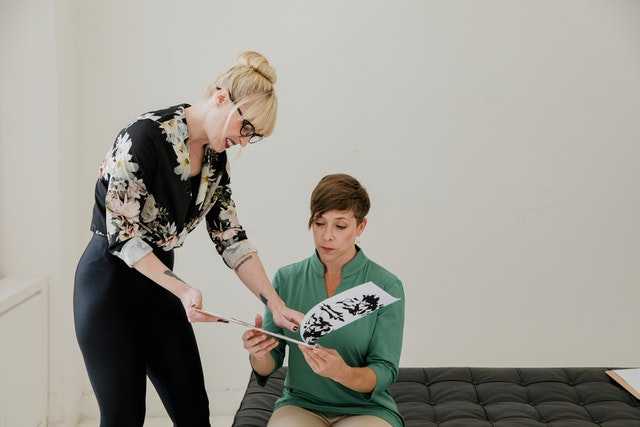How a First-Time Tech Entrepreneur Assembled a Dream Team of Mentors
Author: Zenresume Editorial Team
Updated on March 05, 2021
In less than five years, Andrew Rubin has gone from a relative nobody in the tech field to the founding CEO of cybersecurity unicorn Illumio.
Goldman Sachs named him one of the “100 Most Intriguing Entrepreneurs of the Year” for three consecutive years, and CNBC named his $1 billion company to the “Disruptor 50 List” for the second year in a row.
The obvious question—
How?!
The surprising answer:
By assembling a dream team of mentors who happen to be Silicon Valley titans:
- Marc Benioff, founder and co-CEO of Salesforce;
- Ben Horowitz, co-founder of Opsware (formerly Loudcloud), which was sold to HP for $1.6 billion;
- John Thompson, chairman of Microsoft and former CEO of Virtual Instruments;
- Jerry Yang, co-founder and former CEO of Yahoo.
But why and how did he surround himself with mentors of that caliber?
Find a Mentor or Perish
Over a half a million new businesses are created each year, but only half will survive five years and just a third will make it to their tenth anniversary, according to USA Today.
Working with a mentor, however, can be the difference between success and failure.
A survey by The UPS Store found that 70 percent of mentored businesses survive more than five years. Another report by Harvard Business Review found that:
- 84 percent of CEOs who have mentors said they’ve avoided costly mistakes and became proficient in their roles faster;
- 69 percent said mentors helped them make better decisions;
- 71 percent were certain company performance improved.
“Every day when I show up at work, I’m showing up to the biggest job I’ve ever had,” says Rubin.
“You don’t have to be an entrepreneur or CEO to feel this; if you’re a manager of a team of 10 and now you need to manage five more, that’s the biggest job you’ve ever had. The cheat sheet you can use to help you get through it is to surround yourself with smart, experienced people who’ve been through it before.”
Learn from Your Mentor’s Mistakes
This is why during Illumio’s early days, Rubin spent time networking with other entrepreneurs.
Rubin met Jerry Yang early in his entrepreneurial journey. “He’s prolific, and built and ran a spectacular, large company,” says Rubin. “My conversations with Jerry have focused on how to build and run a successful organization.”
With Benioff and Horowitz, Rubin says he’s learned how to build a great team. Horowitz also shared what it’s like to go through tough times.
“Ben went through a near-death experience at Opsware,” he says. “Fortunately I haven’t had that experience, but he’s shared what it’s like to make tough decisions.”
Thompson has given Rubin advice on semantics. “I’ve spent more time with him than some of the others,” says Rubin. “My conversations with John cover every piece of ground, from tactical to pricing to sales models to customer engagement. He’s lived every aspect of it. We go deep.”
Rubin says he also talks about work-life balance with all of his mentors.
“As an entrepreneur, the hard work can be stressful,” he says. “It’s very difficult to figure out how to find a balance when you’re so passionate about what you do.
“One tip I’ve been given is to not lose sight of the big picture. No matter how tough the day is and how much is piled on your plate, remember that it’s not a sprint. Running a business is like being on 12 marathons all stapled together. You have to pace yourself.”
The best piece of advice Rubin claims he’s received—and advice he’d offer others—is to surround yourself with people who are smarter than you are.
“My mentors have given me a road map that has allowed me to be able to go faster than I otherwise would have gone,” he says. “They gave me insights to avoiding potholes I otherwise would have stepped in along the way. And they gave me confidence along the way to feel like could do the biggest job of my life.”
How to Find a Mentor and Make the Most of Their Help
So how do you find a mentor? It’s a numbers game, according to Kevin Kruse, CEO of the leadership development platform LEADx and author of 15 Secrets Successful People Know About Time Management: The Productivity Habits of 7 Billionaires, 13 Olympic Athletes, 29 Straight-A Students, and 239 Entrepreneurs.
“You should pick at least 10 people who you would love to have as a mentor, with the goal that one of them will say ‘yes,’” he writes.
“Choose people who have succeeded in the area you want to work in. Even if they'd be future competitors that's OK, they won't care. High achievers don’t worry about competition.”
Contact them directly
“You never get a yes unless you ask,” Rubin says. “There’s nothing wrong with emailing and saying, ‘I’m building a company and I see you’re good at it. I’d love to pick your brain.’ You’d be surprised how many people will engage with you.”
Look for people who have a shared experience in your industry or stage
“A CEO of a multi-billion company might not find relevance in a conversation, but someone who’s a fellow entrepreneur who scaled the business and lived through the early days, they would probably be thrilled to talk about it,” Rubin says.
Reach out up to three times over six weeks
“Start with an email, wait a couple weeks then, if no response, send a handwritten letter via FedEx to their office. If no response in two weeks then call on the phone and leave a voicemail,” Kruse suggests.
“Let them know who you are, what your dreams are, and why you want them to mentor you.”
Once you get a yes, don’t waste their time
“Mentoring is an investment,” Rubin says.
“They need to see your investment is real; that you care deeply about it. Be willing to put time and effort to get it there. You also have to leverage your mentors; don’t ask about every possible thing. Focus on the help you need that they’re particularly good at.”
Kruse says the most important part of being a mentee is doing what the mentor suggests: “I'm not taking any mentees now, but when I did, rarely would any of them implement my suggestions,” he writes.
“That gets frustrating after awhile. Why should I voluntarily give you my most precious asset (time) when you don’t do anything with it? I’m better off mentoring someone else.”
Show them your passion
Rubin believes he’s been successful getting mentors to invest their time with him because he’s passionate about his job and his company.
So, what do you think?
Who would be your dream mentors? What questions would you ask them? How can you start building your network to make this dream a reality? Share your insights (you never know who might be listening!)





